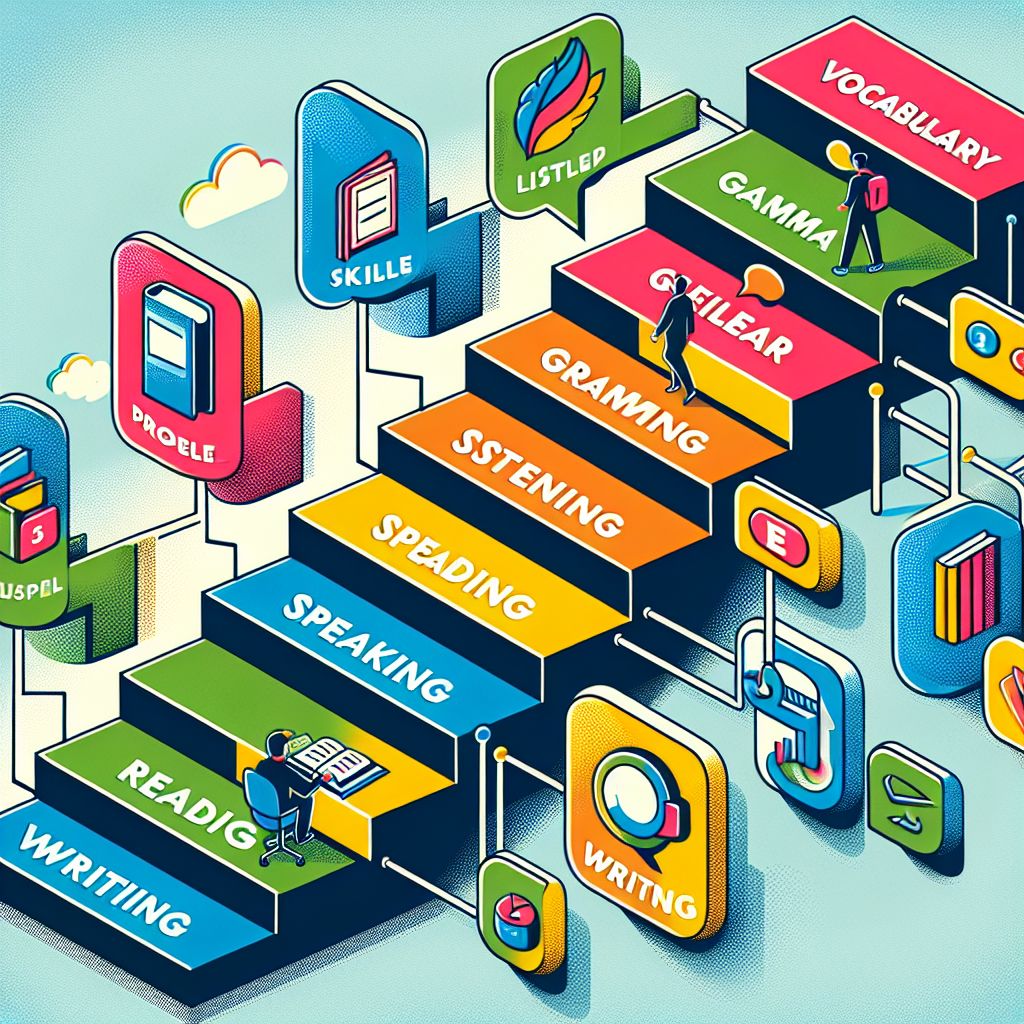Are you looking to enhance your English language skills? Whether you’re a beginner or an advanced learner, mastering English can open up a world of opportunities. In this comprehensive guide, we’ll explore some of the most effective English Language Learning Tips to help you on your journey to fluency.
Why English Language Learning is Important
English is widely regarded as the global language of business, technology, and international communication. Learning English can significantly improve your career prospects, enhance your travel experiences, and broaden your cultural horizons. With over 1.5 billion English speakers worldwide, mastering this language is an invaluable skill in today’s interconnected world.
 English as a global language
English as a global language
Essential English Language Learning Tips
1. Immerse Yourself in English
One of the most effective ways to learn English is through immersion. Surround yourself with the language as much as possible:
- Watch English movies and TV shows with subtitles
- Listen to English podcasts and radio shows
- Read English books, newspapers, and websites
- Change your phone and social media settings to English
By exposing yourself to English in various contexts, you’ll naturally pick up vocabulary, idioms, and sentence structures.
2. Practice Speaking Regularly
Speaking is often the most challenging aspect of language learning, but it’s crucial for developing fluency. Here are some ways to practice speaking:
- Join language exchange programs or find a language partner
- Attend English conversation groups or meetups
- Use language learning apps with speaking exercises
- Record yourself speaking and listen back to identify areas for improvement
Remember, it’s okay to make mistakes. The more you practice, the more confident you’ll become.
3. Focus on Practical Vocabulary
While it’s tempting to learn as many words as possible, focus on acquiring practical vocabulary that you can use in everyday situations. Start with:
- Common greetings and phrases
- Numbers and time expressions
- Food and drink vocabulary
- Travel-related terms
- Work and professional language
As you progress, expand your vocabulary based on your interests and needs.
4. Develop a Consistent Study Routine
Consistency is key when learning a new language. Establish a regular study routine:
- Set aside dedicated time each day for English practice
- Use a variety of learning methods to keep things interesting
- Set realistic goals and track your progress
- Reward yourself for achieving milestones
Even 15-30 minutes of daily practice can lead to significant improvement over time.
 Consistent English study routine
Consistent English study routine
5. Utilize Technology and Online Resources
Take advantage of the wealth of online resources available for English learners:
- Language learning apps like Duolingo, Babbel, or Rosetta Stone
- Online courses and MOOCs from platforms like Coursera or edX
- YouTube channels dedicated to English learning
- English learning websites and forums
Many of these resources are free or low-cost, making them accessible to learners worldwide.
6. Focus on Pronunciation and Accent Reduction
Clear pronunciation is essential for effective communication. To improve your pronunciation:
- Learn the International Phonetic Alphabet (IPA)
- Practice tongue twisters and minimal pairs
- Use pronunciation apps or websites with audio examples
- Listen to and mimic native speakers
Remember that having an accent is natural and doesn’t hinder communication as long as your pronunciation is clear.
7. Read Extensively in English
Reading is an excellent way to improve your vocabulary, grammar, and overall language comprehension. Try:
- Starting with graded readers or simplified texts
- Reading news articles on topics that interest you
- Exploring English literature, from short stories to novels
- Following English-language blogs in your areas of interest
As you read, make note of new vocabulary and try to use it in your own speaking and writing.
8. Write Regularly in English
Writing helps reinforce grammar rules and expand your vocabulary. Practice writing by:
- Keeping a daily journal in English
- Participating in online forums or social media in English
- Writing emails or letters to English-speaking friends
- Starting a blog in English on a topic you’re passionate about
Don’t worry too much about perfection; focus on expressing your thoughts clearly.
9. Learn English Idioms and Colloquialisms
To sound more natural, familiarize yourself with common English idioms and colloquial expressions:
- Study idiom lists and their meanings
- Pay attention to idiomatic expressions in movies and TV shows
- Practice using idioms in your conversations
- Learn about regional differences in English usage
Understanding these expressions will help you communicate more effectively with native speakers.
10. Take Advantage of Real-Life Opportunities
Look for opportunities to use English in real-life situations:
- Volunteer as a tour guide in your city
- Participate in international events or conferences
- Offer to help English-speaking tourists in your area
- Join international online gaming communities
These experiences will boost your confidence and provide authentic language practice.
Common Mistakes to Avoid
While learning English, be aware of these common pitfalls:
- Relying too heavily on translation: Try to think in English rather than translating from your native language.
- Neglecting listening practice: Listening is crucial for developing natural speech patterns.
- Being afraid of making mistakes: Embrace errors as learning opportunities.
- Focusing only on grammar rules: While important, grammar should be balanced with practical communication skills.
- Avoiding speaking opportunities: Don’t let shyness hold you back from practicing.
Next Steps in Your English Learning Journey
Now that you’re equipped with these essential English language learning tips, it’s time to put them into practice:
- Assess your current English level with an online test
- Set specific, measurable goals for your English learning
- Create a study plan incorporating various learning methods
- Find a language exchange partner or join an English conversation group
- Start a 30-day English immersion challenge
Remember, learning a language is a journey, not a destination. Enjoy the process, celebrate your progress, and stay motivated by reminding yourself of the benefits of mastering English.
By consistently applying these English language learning tips, you’ll be well on your way to achieving fluency and confidence in your English skills. Keep practicing, stay curious, and don’t be afraid to make mistakes – they’re all part of the learning process. Good luck on your English language journey!




